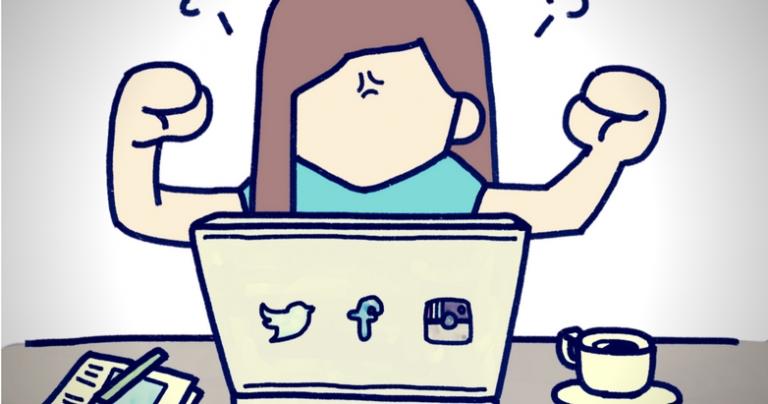
We have an incredible amount of information at our fingertips. Anyone with a smartphone can get educated about whatever they are interested in—for free. But something has gone terribly wrong. What was once dubbed the Age of Information can now rightfully be called the Age of Misinformation… and we are all a part of the problem.
Controversy and Outrage Get Clicks
This trend is easy to spot in politics. I recently heard a reporter say that for every article that he wrote about Hillary Clinton in 2016, his articles about Trump got thousands of more clicks because he was always doing something controversial and disruptive. The trend reached beyond the scope of his supporters because those who disliked him seemed to contribute to the problem with constant outrage, giving more attention and credence to the controversy.
Also True in the Conversation About Faith
I did an unscientific survey on Patheos, the website I write for. We pride ourselves on hosting the conversation on faith, but as I clicked around on the site, I noticed that the more controversial the title, the more clicks, shares, and comments it had gotten. Thoughtful articles about philosophy, theology, and interfaith, on the other hand, seemed to get much less attention.
We Have a Problem
I get it. Controversy screams at us in a sea of endless information. It self-perpetuates through a cycle of clicks and shares and is fueled by supporters, trolls, and outrage.
But at what point will we stop and realize that this trend has turned into a harmful addiction? When will we realize that we have created an undercurrent of division that has played right into the hands of outsiders who have succeeded in disrupting our society far beyond their wildest dreams? When will we accept responsibility for our own part in creating this online phenomenon? And when will we collectively realize that the only solution is to stop feeding the monster of division?
Blame Game
It’s easy to blame others. As I wrote about recently, the basic human instinct is to cry out, “It’s not us, it’s them!” Sure, you can blame the media companies, the social media platforms, the political parties, the places of worship that sow division and hatred instead of watering the seeds of love and compassion, the individuals who wear the troll label as a badge of honor, and others who contribute to this problem. You can blame people who have different theologies and ideologies, choose a different lifestyle, and so on, and so forth. You can blame everyone but yourself—but only you can stop feeding the beast with your attention.
Can We Starve the Dividers?
Division craves attention. If we collectively starve the screamers, the trolls, the conspiracy theorists, the controversialists, and everyone else who is contributing to the problem by not giving them our eyeballs, clicks, and outrage…. well… who knows what might happen.
Gudjon Bergmann
Interfaith Minister, Author, and Speaker
Founder of Harmony Interfaith Initiative
Follow me on Facebook and Twitter
Picture: Pixabay.com CC0 License












